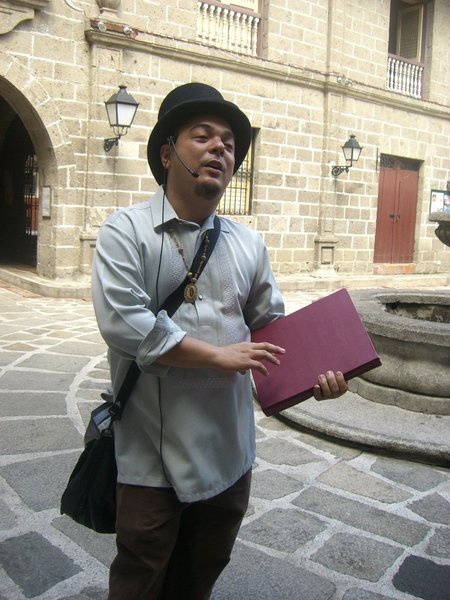On Feminism, Queer Theory & Post-Modern Feminism
 |
| The Glass Ceiling |
I chose to do a critical commentary on this because of how personal Feminism is to me: as a female who struggles with the opportunities and limits brought about by her gender and someone who continually tries to go beyond the "glass ceilings"
"We are all bound by our conditionality" is a phrase that as a person of the female gender, and as a person who constantly strived to push boundaries, try to transcend, encompass and reject. I reject this phrase, but there are times where i feel that this phrase may hold some truths.
out of all the discussions on feminism that we have learned in class, i can relate myself the most to ž“Beyond-bitch” Feminism—where women reject the whole masculinity-femininity duality, and by implication, their role as victims (as taken from the CULPOLI lecture powerpoint)
Let me start with an anecdote, one that is short but significant enough to change my whole perspective on the whole masculine-feminine paradigm. I was taking the course "Seminar on International Relations" under Mrs. Nikki Briones Carsi-Cruz, when me and a few friends volunteered to report on Feminism as an issue in the international political arena. We knew one of our professor's specialties was Feminism, and that reporting such a topic would only "brush through the surface" of something she has a deep understanding on, but we were still determined. We prepared videos, anecdotes, graphs, extra resources in our presentation and we were confident that we would give justice to the readings and the coverage given to us. Our report was concise, the flow was logical, it was rational and orderly; the ideas properly categorized and organized, or so we thought. It was time for our presentation and despite the lingering feeling of nervousness, we were pretty much happy and content with our report, as it is a product of our hard work. We were surprised to get a negative response from our professor, and we were told to do the report again, with more feelings and with a personal touch. I didn't understand her point entirely, so my group and I added pictures, videos and more anecdotes to aid in our presentation, while the logical and rational flow of the report remained the same. We presented for the second time and Mrs. Carsi-Cruz was still not satisfied, and our group was so frustrated that it brought us to tears in front of the whole class.
We talked to our professor and realized that even in the way we think and process knowledge has a very masculine approach (the logical, rational, analytical and compartmentalized approach to thinking), which makes the feminine approach (emotional, personal, interconnectedness and abstract approach to thinking) has been outnumbered and even marginalized. The fact that even without knowing it, and merely thinking in a certain way, i am contributing to the oppression of the essence of what is known to be feminism makes me question and re evaluate what other day-to-day practices i have that have a bias towards the masculine. All my life, i have been competitive and much of what has driven me to work hard, was that desire to achieve excellence in whatever i have done. in the process of such a pursuit, i have observed and adapted to the environment and practiced what i saw to help pave the way for success and give one an upper hand and edge over everyone else. the mere academic trait of being logical and categorical (which i have adapted and strived to perfect) is masculine in itself, and biased, marginalizing the feminist way of thought.
The queer theory is something that i can personally identify with, at an intellectual context, my mind can be seen as "bisexual". There is a struggle for me to conform to what is accepted in society and viewed as qualities that allow one to get an upper hand, the qualities needed to excel and to be the best and to stay true to my being a female being, where feminist theorists would argue that being emotional, recognizing the interconnectedness and unpredictability of certain outcomes as primarily feminist qualities. For me, it has always been sort of an identity crisis, one which i have always had struggles with; to adapt, or to stay true to my gender's qualities?
Being an avid reader of magazines like TIME and The Economist, I came across an article entitled "Womenomics"(click here for article) dated almost 2 years ago. This looks at feminism in the context of the workplace and the corporate world. Based on my own understanding, the article has 2 main arguments:
1. Feminist's perspectives have changed over time, from what used to be the belief that women should be judged on the same standards as those used on men have now significantly shifted to today's influential and famous feminist's belief that it is no longer enough and women will never be able to be equally judged with the same standards as men, and that a complete restructuring and removing the "inherent sexism in corporate structure", because women are different from men.
2. Despite what these women may think, feminist qualities are actually becoming more valuable and considered an asset and an advantage in the corporate and business world, as evidenced by the financial crisis which reflected decisions made by people who have used masculine qualities such as rick taking and etc.
I would like to think of this as a phenomenon that is about to mature and full blown in the near future, as the trend of democracy in the world has become so widespread, it is my personal dream to see women succeed in whatever field without the burden of dealing with the imposed limitations by their own gender, strengthened by sexist and biased view of society. After all, as Mr. Contreras said, feminist cultural studies is also about making the invisible, visible.












